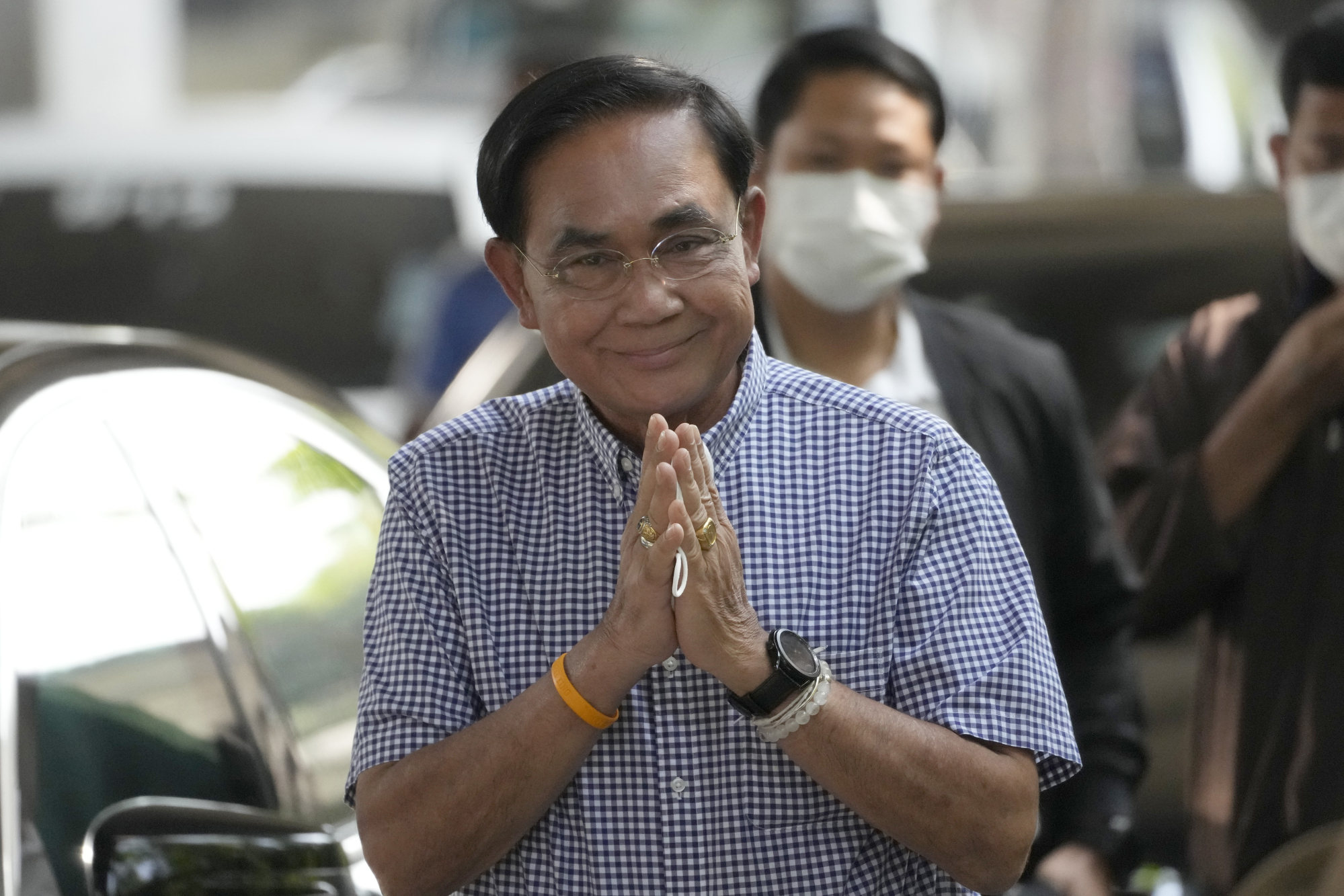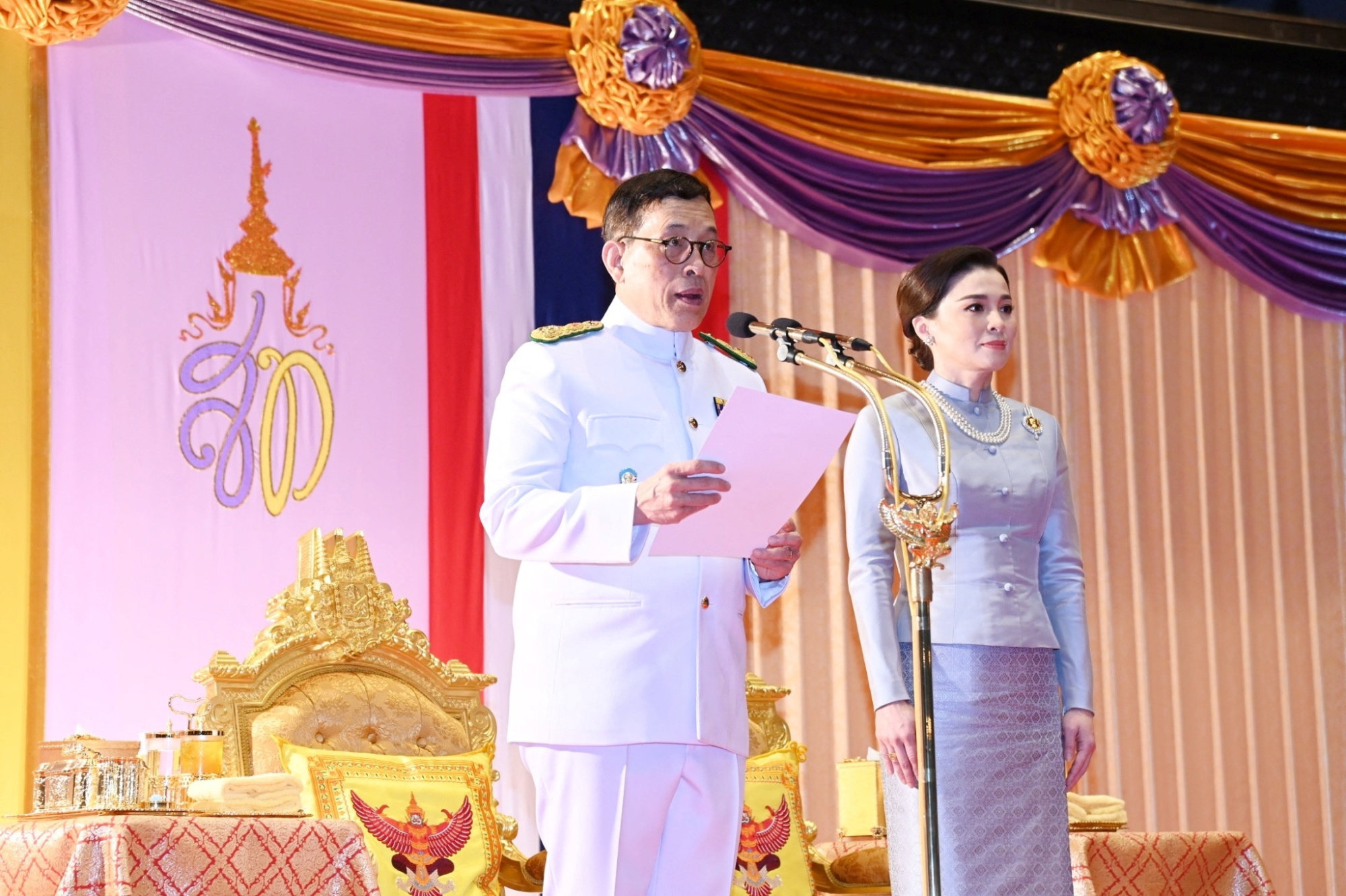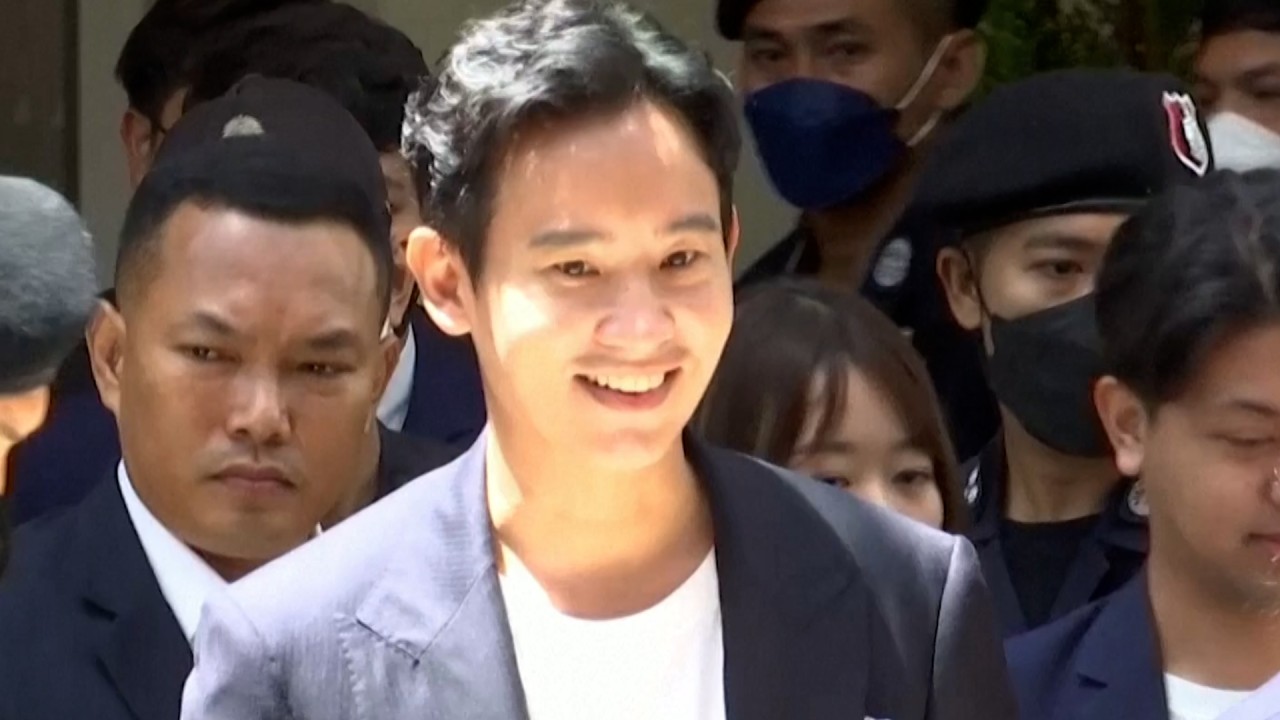
In Thailand, Pita’s PM bid stumbles as progressive-conservative showdown looms
- A coalition of eight parties led by the progressive Move Forward Party is ready and raring to form a new government, but lacks the votes needed for PM
- Pita Limjaroenrat’s bid to become Thailand’s 30th prime minister could yet be thwarted by conservatives and an army-drafted constitution, experts say

“This could be the end of the road for Prayuth in politics,” said Napon Jatusripitak, a visiting fellow at the Singapore-based ISEAS – Yusof Ishak Institute.
But in a country where coups have occurred every seven years, on average, since 1932, experts warn that it does not mean the army is heading for the exit doors of power, especially when it is tasked with protecting Thailand’s apex institution: the monarchy.
Pita’s progress towards becoming Thailand’s 30th prime minister is likely to be thwarted by a constitution specifically designed to leave the door ajar for the conservative camp in the event of its defeat at the polls, observers say.
Pita needs 376 votes to be made prime minister, but can only count on 312 of the 500 seats available in the lower house.
The remaining 64 votes must be reeled in from conservative rivals in the house or the 250-member Senate, which was appointed by Prayuth.
Senators will be able to vote against – or abstain – when Pita’s name is put forward for the premiership on Thursday.

“We can now see the real fault line in politics is the role of the monarchy in Thailand’s political order,” Thitinan Pongsudhirak, a political analyst at Bangkok’s Chulalongkorn University told Reuters.
Still, the dial may have now turned decisively towards a radical democracy party.
“In the short term, it is difficult to envision an outcome that clearly favours the pro-democracy bloc,” analyst Napon said. “[But] MFP still claims the mandate of 14 million voters, and there is no other political party in sight that could take its place in the long run.”
If Pita is not voted in as prime minister I am absolutely certain that we’re headed to a breaking point as a country
The vote for prime minister can be repeated two more times until a new candidate is likely to step forward, potentially real estate mogul Srettha Thavisin from Pheu Thai.
But if Pheu Thai also fails to woo the Senate, a way back to power could open up for the royalist generals and their allies.
But any move to wipe Pita off the political map could backfire in a deeply divided country where political protests can turn violent.
“If Pita is not voted in as prime minister, I am absolutely certain that we’re headed to a breaking point as a country,” said Tanawat Jokekratoke, 53, from Nakhon Phanom, in northeastern Thailand – a lifelong Pheu Thai voter who switched to MFP at this year’s election.
“It’s about the fight between dictatorship and the people. Our mandate [as voters] should be respected.”
In a video message directed towards the parliament ahead of the vote, he said: “It doesn’t matter if you voted for me or not, I am ready to be a prime minister for everybody.”
Exasperated Move Forward MPs say the deliberate delay between winning an election and taking power reveals all that is wrong with Thailand’s army-steered politics.
“It’s ridiculous that two months after an election we still don’t know who is going to be prime minister. That’s no good for the country, the economy or the people,” Bangkok lawmaker Taopiphop Limjittrakorn told This Week in Asia.
But no matter what happens next to Pita or the party, the movement for change has “already won”, he said. “Our party is like a seed, once they try to bury us we will grow.”

